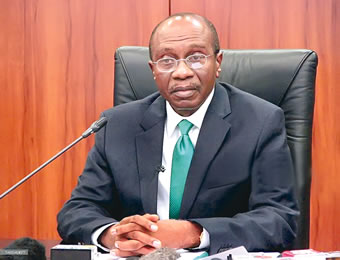The Fund expects an average inflation rate of 16.3 per cent in 2017 and 14.8 per cent in 2018.
In its World Economic Outlook (WEO) October 2017 edition, the IMF expects the inflation rate in Nigeria in 2017 and 2018 to remain elevated at double-digit levels.
The institution’s position is slightly different from Nigeria’s Central Bank’s (CBN) expectation of a single digit inflation.
CBN Governor, Godwin Emefiele said on Friday he expected inflation rate to fall at a faster pace and hit high single digit rates mid-next year.
“We are very optimistic that food prices will come down and as they come down, it will help to complement the reduction in core inflation,” Mr Emefiele told journalists on the sidelines of the launching of 2017 banking sector report by Afrinvest West Africa Limited held at the London Stock Exchange.
“I expected a more aggressive moderation. We are hoping that by the middle of next year we should begin to approach the high single digits,” he said, adding that “around nine per cent would be a good target.”
Meanwhile, IMF’s prediction is based on its assumption of the persistent effects of past inflationary shocks coming from sharp currency depreciations (including the parallel market exchange rate), higher electricity and fuel prices, and an accommodative monetary policy going forward.
At the moment, the CBN adopts a restrictive monetary policy in order to curb the high inflation rate and maintain stability in the foreign exchange market. The inflation rate in Nigeria declined for seven consecutive months to stand at 16.01 per cent in August 2017. FSDH Research forecasts that it will drop marginally to 15.96 per cent in September 2017.





